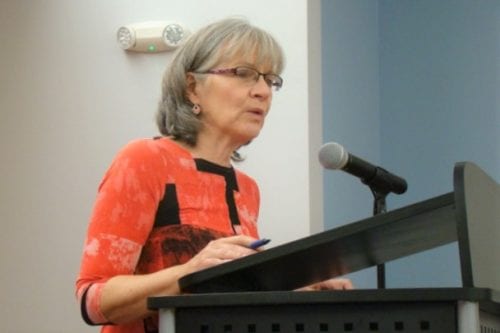WESTFIELD – The Greater Westfield Chamber of Commerce Executive Director Kate Phelon alerted members to a statewide phone call March 30 with U.S. Sen. Edward Markey to discuss the Small Business CARES Act, part of the $2.2 trillion stimulus package passed by the government.
After the call quickly maxed out at 300, then faced audio difficulties for the first half hour, Markey and his invited guest Sen. Ben Cardin of Maryland, who chairs the Senate Committee on Small Business & Entrepreneurship talked about the different loans available to help small businesses through the next eight weeks.
Markey, who also serves on the senate committee, said his purpose was to provide information to some of the 700,000 small businesses in the Commonwealth. “You’re a very important part of our GDB,” Markey said.
Cardin said there is $377 billion of new program relief for small businesses that is available now, or up and running as early as next week.
Cardin said $350 billion is available through financial institutions as a streamlined loan that is 100% guaranteed by the federal government. “If you use it for your payroll, rent, utilities; 100% can be forgiven. It is meant to carry businesses for eight weeks,” Cardin said, adding that non-profits and self-employed will also qualify.
Also available is a new grant program under the Small Business Administration (SBA). Cardin said this grant will be available within three days, and never has to be repaid.
The third program in the stimulus package is for existing loans with the SBA. Cardin said six months of payments can be completely forgiven.
After receiving several questions about the loans, Cardin said a guide was developed by the committee for the program, and is available on his website at www.cardin.senate.gov. He also suggested calling the local SBA District Office, a resource partner for the council.
Markey said he would also post a link to the guide on his website at markey.senate.gov after the meeting. He suggested businesses get the information on how the programs work, and then contact his office by email or phone. “I want to be as helpful to your individual business as I can be. Email or call my office, and we will try to help any of you who want to navigate through this process,” Markey said.
One caller raised the issue that most business insurance policies state that business interruption is not covered by virus, and asked whether anyone in D.C. is approaching insurance companies.
Cardin said this has come up, and is an area that is not resolved and requires additional legislative scrutiny. ‘It has been brought to our attention. We expect insurance companies to do their fair share,” Cardin said.
“We’re going to need the cooperation of the insurance industry,” added Markey.

Greater Westfield Chamber of Commerce Executive Director Kate Phelon. (THE WESTFIELD NEWS FILE PHOTO_
Following the call, Phelon commented on the many questions callers had. “It’s so confusing, there is so much out there for help, but it’s overwhelming for these small businesses,” she said.
“It’s grim. These are very challenging times for them. They’re worried. Some of them have landlords that are working with them, some of them don’t. They’re worried about paying overhead; rents, utilities. They have no sales; some of them aren’t drawing, they have no wages. It’s very concerning, unprecedented, challenging times for all of us,” Phelon said.
Phelon said the Chambers of Commerce statewide are on weekly phone calls with state administrators. “Our standing conference call is every Friday at 1 p.m. If they feel that it’s necessary, we’ve been getting two calls a week. They’ve been giving us updates,” Phelon said, adding that if businesses have questions or concerns, they should relay them to her. “I can bring it to the call on Friday,” she said.
“We need the insurance industry. We need their support and consideration to do something for these small businesses. We know it could have an impact on the insurance industry,” Phelon said about the question that was raised on the call.
“These businesses had no option but to shut down based on Gov. Baker’s mandate; they had no choice, and they’re not covered under business insurance. We’re hoping that at some point this could be looked at more seriously as another revenue source. Right now, it’s survival mode,” Phelon said.









